En mi presentación comenté que nací en la bella Ciudad de Maracaibo en el año 1946 a las nueve de la noche un 31 de octubre. Mi mamá, una mujer con poco conocimiento de la vida y sin muchos estudios, sin embargo muy trabajadora en el área doméstica, criada por mi abuela, una mujer dedicada a trabajar para levantar a sus hijos sola, como toda madre soltera. Mi mamá era la mayor de seis hermanos y única mujer.
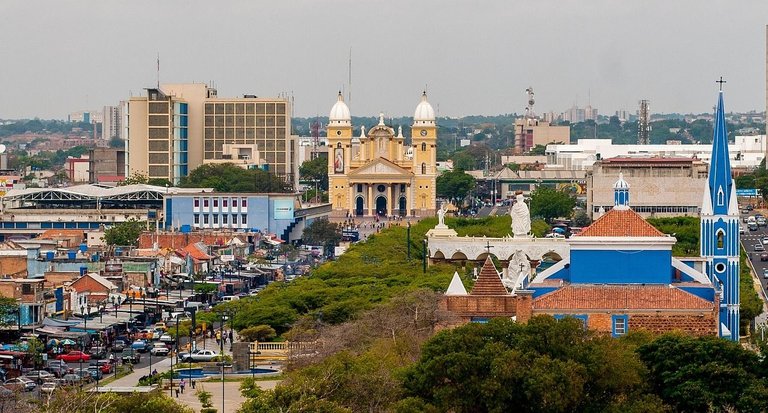
Ciudad de Maracaibo imagen de pixabay
Mi abuela, su nombre Ramona Antonia González, nació en Carúpano, Estado Sucre. Era una mujer de piel muy blanca, pelo negro, descendiente de los indios Caribes con rasgos indígenas muy marcados, faz dura y de carácter fuerte, de estatura mediana, sin estudios y analfabeta. Quedó huérfana en su niñez desde los 11 años, y comenzó a trabajar con familias pudientes de la época. Fue adoptada como niñera por una familia y viajó a la Isla de Tenerife, que se encuentra a algo más de 300 km del continente africano, y a unos 1.000 km de la península Ibérica, también a Melilla, situada en el norte de África, a orillas del mar Mediterráneo en la frontera norte con Marruecos. Las dos ciudades pertenecen a España.
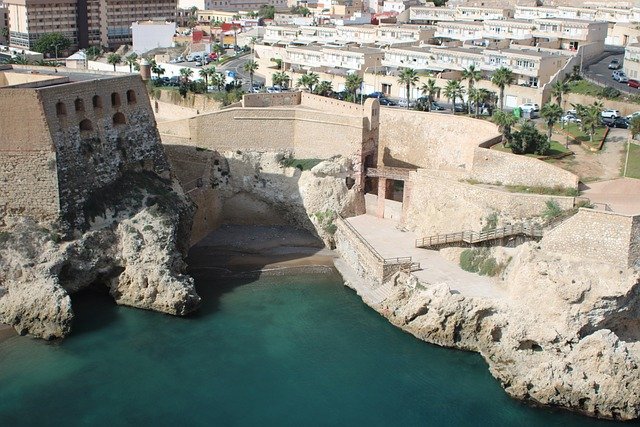
Ciudad de Melilla imagen de pixabay
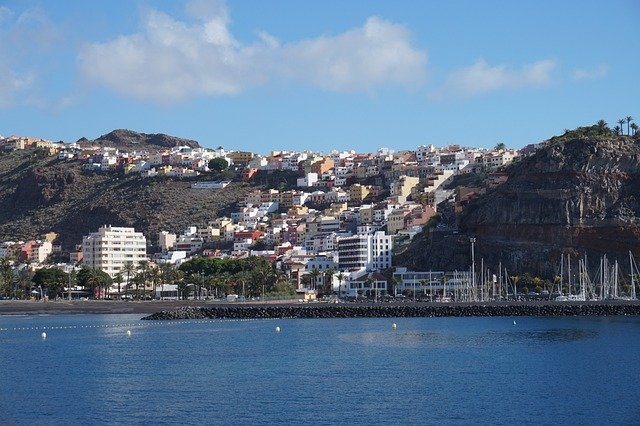
Ciudad de Tenerife imagen de pixabay
Luego, de joven adulta, se regresó a Venezuela y se estableció en la ciudad de Carúpano, estado Sucre. Por cuestiones de la vida, conoció a un familiar de Cipriano Castro llamado Gilberto Castro, de quien tuvo una hija siendo madre soltera (mi madre).
Nacida en Maracaibo el 10 de septiembre de 1918, mi mamá nunca quiso que se supiera que era hija de un familiar de Cipriano Castro, quien era militar; siempre se respetó su decisión. Hoy lo menciono porque ya no se encuentra físicamente.
A los 18 años, mi mamá conoció a mi papá en una fiesta familiar. Él quedó impresionado con la joven, se enamoraron, aunque mi papá ya era un hombre casado y trabajaba como oficinista en la empresa Raymond Braun en el Municipio de Perijá, a unos cuantos kilómetros de Maracaibo. De esa unión nací yo, una mujer cariñosa, soñadora, aventurera, emprendedora, positiva 100% de mucha fe, con buenos principios, honesta, luchadora, que no se da por vencida, sigue intentando hasta alcanzar las metas que se ha fijado, me gusta compartir conocimientos, para dejar relevos y que estos sean mejores.
Mi papá, nacido en Maracaibo, quedó huérfano de madre desde los 10 años. Su padre era guajiro (indígena guayu) y su madre hija de padre español. Mi papá emigró a los Estados Unidos en 1938 en un barco llamado Lara y llegó al puerto de Nueva York (anexo Planilla del embarque). Allí aprendió el idioma y regresó en 1941 por la guerra al ser reclutado para ir al frente (2da guerra Mundial).
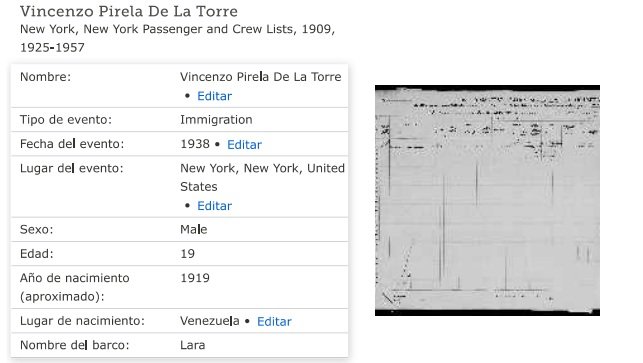
Imagen de Archivo familiar
Por un descuido de sus superiores, huyó a Venezuela desertando del ejército; se le consideraba prófugo del ejército estadounidense en ese tiempo, y perdió el beneficio de entrar a los Estados Unidos (más adelante comentaré cómo regresó de nuevo a ese país y se hizo ciudadano estadounidense).
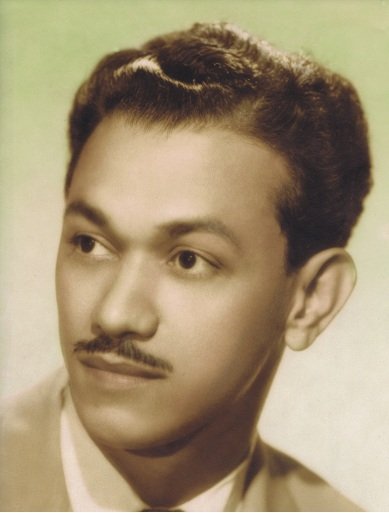
Vincezo Pirela foto de Archivo familiar
Mi mamá, como toda madre soltera, le tocó trabajar de lo que pudiera para salir adelante. Su medio de vida y sustento era levantarse muy temprano con el alba. En compañía de mi abuela, las dos se complementaban: hervían café, llenaban varios termos de café, hacían pasteles, empanadas, vendían revistas, periódicos y billetes de lotería. Un trabajo duro para una madre soltera y sin ayuda. Mi abuela, recia para trabajar por su naturaleza, se trasladaba a la empresa Creole en Tía Juana, Zulia, Venezuela (un recorrido de 25 minutos de Cabimas a Tía Juana). Debía estar allí antes de que salieran las lanchas de los muelles para vender sus productos, y se quedaba hasta el regreso de los trabajadores de los pozos petroleros o de las gabarras de perforación a las tres de la tarde todos los días.
Mi mamá se quedaba en la casa para cuidarme y hacer los quehaceres diarios de todo hogar. Tengo grabado en mi infancia el recuerdo de mi abuela: cuando podía, me sentaba en sus piernas y me contaba de su juventud. Aunque mi mamá se casó después y tuvo ocho hijos, dos varones y seis hembras, yo siempre fui su nieta predilecta.
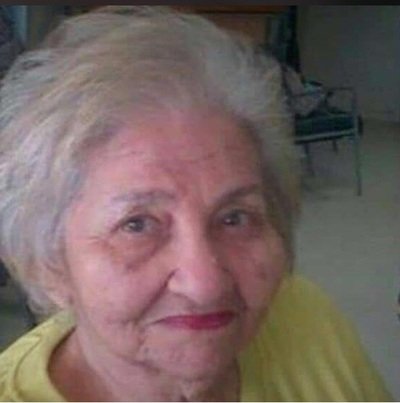
Maria Gonzalez foto de Archivo familiar
FALTA DE AMOR
Cuando tenía 3 años de edad, mi abuela me llevó a casa de la hermana de mi papá pensando que sería lo mejor para mi futuro, para que me criara. Mi tía, casada con dos hijos pequeños, me recibió. Recuerdo que llevaba un vestidito de bartolina color verde manzana y en el pie del ruedo unas manzanitas rojas bordadas con unas tiras para amarrar atrás con un lazo. Lloré mucho en la noche extrañando a mi mamá. No pensé que me quedaría por 17 años en ese hogar.
Lo que siempre me pegó fue la falta del amor de mi madre. Aunque no sabía expresarlo, la ausencia de mi mamá hizo desarrollar en mí el querer estar a su lado. En esos tiempos uno no podía expresar sus sentimientos. Tenía el anhelo de vivir al lado de mi mamá, pero no era comprendida por mi abuela ni por mi papá.
CONTINUARÁ
Version in English

City of Maracaibo image of pixabay
My grandmother, her name Ramona Antonia González, was born in Carúpano, Sucre State. She was a woman of very white skin, black hair, descendant of the Carib Indians with very marked indigenous features, hard face and strong character, of medium height, uneducated and illiterate. She was orphaned in her childhood from the age of 11, and began to work with wealthy families of the time. She was adopted as a nanny by a family and traveled to the island of Tenerife, which is located just over 300 km from the African continent, and about 1,000 km from the Iberian Peninsula, also to Melilla, located in North Africa, on the shores of the Mediterranean Sea on the northern border with Morocco. Both cities belong to Spain.

City of Melilla image of pixabay

City of Tenerife image of pixabay
Later, as a young adult, she returned to Venezuela and settled in the city of Carúpano, Sucre state. Due to life circumstances, she met a relative of Cipriano Castro's named Gilberto Castro, with whom she had a daughter as a single mother (my mother).
Born in Maracaibo on September 10, 1918, my mother never wanted it to be known that she was the daughter of a relative of Cipriano Castro, who was a military man; her decision was always respected. I mention it today because he is no longer physically present.
At the age of 18, my mother met my father at a family party. He was impressed with the young woman, they fell in love, although my dad was already a married man and worked as an office worker in the Raymond Braun company in the Municipality of Perijá, a few kilometers from Maracaibo. From that union I was born, a loving, dreamy, adventurous, enterprising, positive, 100% positive woman with a lot of faith, with good principles, honest, fighter, who does not give up, keeps trying until she reaches the goals she has set, I like to share knowledge, to leave relays and to make them better.
My father, born in Maracaibo, was orphaned since he was 10 years old. His father was guajiro (indigenous guayu) and his mother was the daughter of a Spanish father. My father emigrated to the United States in 1938 on a ship called Lara and arrived in the port of New York (see attached boarding form). There he learned the language and returned in 1941 because of the war when he was drafted to go to the front (2nd World War).

Family archive image
Due to an oversight by his superiors, he fled to Venezuela, deserting from the army; he was considered a fugitive from the U.S. Army at the time, and lost the benefit of entering the United States (I will discuss later how he returned to the U.S. and became a U.S. citizen).

Vincezo Pirela family archive photo
My mother, like all single mothers, had to work at whatever she could to get by. Her livelihood was to get up very early at dawn. In the company of my grandmother, the two complemented each other: they boiled coffee, filled several thermoses with coffee, made cakes, empanadas, sold magazines, newspapers and lottery tickets. Hard work for a single mother with no help. My grandmother, hardy by nature, would commute to the Creole company in Tia Juana, Zulia, Venezuela (a 25 minute drive from Cabimas to Tia Juana). She had to be there before the boats left the docks to sell their products, and she would stay until the return of the oil well workers or drilling barges at three o'clock in the afternoon every day.
My mother stayed at home to take care of me and do the daily chores of every household. I have the memory of my grandmother engraved in my childhood: whenever she could, she would sit on my grandmother's lap and tell me about her youth. Although my mother married later and had eight children, two boys and six girls, I was always her favorite granddaughter.

Maria Gonzalez family archive photo
LACK OF LOVE
When I was 3 years old, my grandmother took me to my dad's sister's house thinking it would be best for my future, to raise me. My aunt, married with two small children, took me in. I remember that I wore a little apple green bartolina dress and at the bottom of the hem I wore little red manzanitas embroidered with strips to tie in the back with a ribbon. I cried a lot at night missing my mom. I didn't think I would stay for 17 years in that home.
What always hit me was the lack of my mother's love. Although I didn't know how to express it, my mother's absence made me want to be by her side. In those times one could not express one's feelings. I longed to live next to my mother, but I was not understood by my grandmother or my father.
TO BE CONTINUED
Saludos muy linda su historia y tiene muy buena memoria para recordarse tantas cosas. Es triste el haberla separado de su madre tan chiquita a los 3 añitos, lógico que será terrible tener que quedarse con una tía y por tanto tiempo, horrible.
Gracias por comentar, si es cierto terrible cuando veia pasar los dias y no veia a mi mama, reconozco que eso me marco.
Interesante historia, yo tengo un ancestro que era muy cercano a Cipriano Castro, era militar. Me Yamo mucho la atención esa parte. Me encanta la historia por ese tipo de conexiónes.
Gracias por comentar, si ese señor se llamaba Gilberto Castro militar tambien, al final de su carrera se fue a vivir a Suiza alli murio. Es lo que pude investigar.
Congratulations @maigualidag! You have completed the following achievement on the Hive blockchain And have been rewarded with New badge(s)
Your next target is to reach 500 upvotes.
You can view your badges on your board and compare yourself to others in the Ranking
If you no longer want to receive notifications, reply to this comment with the word
STOPHola @maigualidag!, me hiciste recordar la historia de mi madre, pero ella ya mas grandecita de 8 años, fue a casa de su madrina, a ayudarla con sus morochos...estoy enganchada con tú historia, gracias por compartirla 💕
Gracias la voy a compartir en varios capitulos, pronto estare subiendo comentarios solo de mi niñez e infancia
Una conmovedora historia. Me gustó mucho la documentación. Muy completa. Saludos
agradecida por leer y comentar